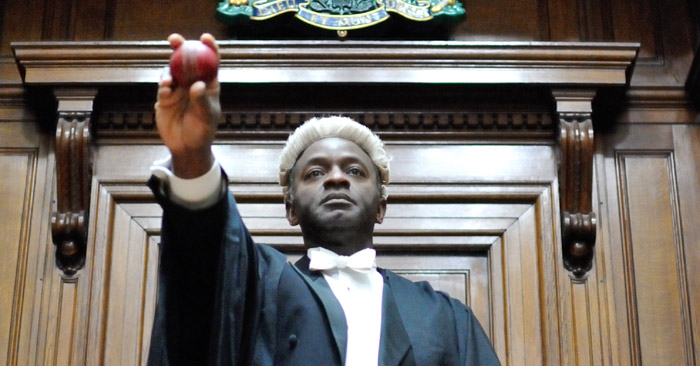Written and performed by Tayo Aluko
Directed by Amanda Huxtable
Liverpool Playhouse Studio
5th – 8th October 2016
Reviewed by Colin Serjent
This is an absorbing and thought-provoking monologue, spanning 90 minutes, interspersed with segments of songs adroitly sung by Tayo Aluko, accompanied on piano by David Dear.
It covered the life of Tunji Sowande, the first black judge – he came from Nigeria- in British history. His love of cricket was all consuming and was a great admirer of the West Indies Test side, particularly Gary Sobers and Viv Richards, to name but two of his cricketing heroes.
Aluko’s description of Test cricket, especially in the late 1960s, when I was a wee lad, brought back many happy and vivid memories of the game at that time. I would often walk around with a small transistor radio glued to my ear, endlessly listening to BBC Radio’s Test Match Special.
His first interview for the job of a lawyer in Britain proved a bitter pill to swallow. ‘The learned gentleman’, also a lawyer and cricket lover, told him to go back home to ‘Bongo Bongo land.’
Many years on, after Sowande had established himself as a successful lawyer, he met up again with the racist at the MCC members enclosure. Sowande had recently gained membership of this exclusive club and must have enjoyed have some sort of satisfaction at seeing his former adversary, worse for wear, attired in a worn MCC blazer splattered with food crumbs and spit.
Aluko is particularly strong on world events, political and sporting in 1968, a year replete with conflict and creativity. He refers to the one-handed black panther salute by black American runners Tommy Smith and John Carlos, in protest at the participation of Apartheid-era South Africa at the Mexico Olympic Games.
Apartheid in South Africa was also addressed in reference to Basil D’Oliveira, a black English test cricketer of South African descent, whose selection by England for a tour of South Africa in 1968-69, which was later called off, led to the so-called D’Oliveira Affair.
Once again the Liverpool Playhouse Studio has staged another memorable production.
